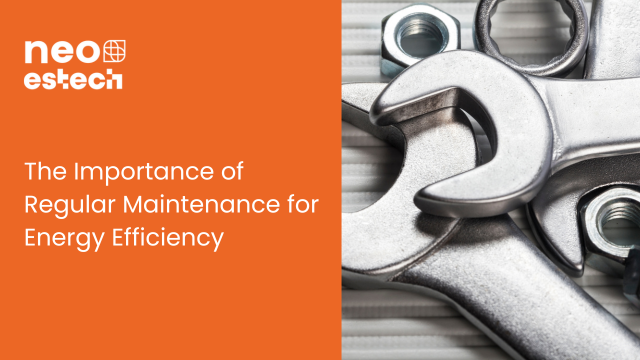Regular maintenance plays a crucial role in the energy efficiency of supermarkets. The relationship between maintenance and energy efficiency is direct: well-maintained equipment operates more efficiently, consuming less energy and experiencing fewer failures. Additionally, proper maintenance extends the life of equipment, resulting in long-term cost savings.
Relationship Between Maintenance and Energy Efficiency: Keeping refrigeration systems, air conditioning, lighting and other equipment in good condition is essential to ensure that they operate at maximum efficiency. Lack of maintenance can lead to dirt accumulation, component wear and misadjustment, all factors that increase energy consumption.
Impact of Maintenance on Equipment Lifespan: Regular maintenance not only improves energy efficiency, but also extends the lifespan of equipment. Well-maintained equipment is less prone to failure and requires fewer expensive repairs. This results in significant long-term savings by avoiding the need to replace equipment prematurely.
Good Preventive Maintenance Practices:
- Regular Inspections:
- Perform periodic inspections of refrigeration, air conditioning and lighting systems to identify and correct problems before they become serious.
- Component Cleaning:
- Keep evaporators, condensers, filters, and fans clean to ensure proper air circulation and prevent system overload.
- Pressure and Fluid Level Verification:
- Regularly check the pressures and fluid levels of refrigerant to ensure efficient operation of refrigeration and air conditioning systems.
- Automation System Maintenance:
- Keep software up to date, replace faulty sensors, and calibrate sensors regularly to ensure the accuracy of automation systems.
Tools and Resources for Efficient Maintenance:
- Computerized Maintenance Management System (CMMS):
- Use a CMMS to schedule and track maintenance activities, ensuring that all tasks are performed in a timely manner.
- Diagnostic Equipment:
- Tools such as thermographs, vibration meters, and energy analyzers are essential for identifying hidden problems and performing accurate diagnoses.
- Real-Time Data Analysis:
- Use systems that allow for real-time data analysis to anticipate problems and perform more accurate diagnoses.
- Team Training:
- Provide regular training to the maintenance team to ensure they are up to date with best practices and new technologies.
Economic Impact of Regular Maintenance: Regular maintenance can have a significant economic impact, resulting in energy savings of up to 15%, as well as drastically reducing the incidence of equipment failures and breakdowns. In addition to reducing energy consumption, maintenance minimizes the risk of unexpected failures and prolongs the lifespan of equipment, resulting in lower replacement and repair costs.
Conclusion: Regular maintenance is essential for the energy efficiency of supermarkets. Well-maintained equipment operates more efficiently, consumes less energy, and has a longer lifespan. Implementing a preventive maintenance plan with regular inspections, proper cleaning, and use of diagnostic tools can result in significant cost savings and operational improvements.
Encouraging the implementation of an effective maintenance plan not only benefits energy efficiency but also ensures the sustainability and competitiveness of the supermarket in the market. Adopting these practices is a smart investment for the future of the company.


